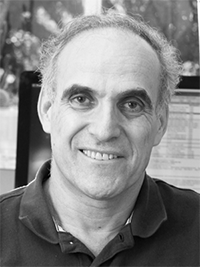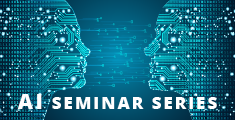Extra AI Seminar: The Information Bottleneck Theory of Deep Learning: Towards Interpretable Deep Neural Networks
Speaker
Dr. Naftali Tishby is a professor of Computer
Abstract
In the past several years we have developed a comprehensive theory of large scale learning with Deep Neural Networks (DNN
(2) The Information Plane theorem: For large scale typical learning the sample-complexity and accuracy trade-off is characterized by only two numbers: the mutual information that the representation (a layer in the network) maintain on the input patterns, and the mutual information each layer has on the desired output label. The Information Theoretic optimal trade-off between these encoder and decoder information values is given by the Information Bottleneck (IB) bound for the rule specific input-output distribution. (3) The layers of the DNN reach this optimal bound via standard SGD training, in high (input & layers) dimension.
In this (2 hour) talk I will review these results and discuss two new outcomes of this theory: (1) The computational benefit of the hidden layers, (2) the emerging understanding of the features encoded by each
Based on joint works with Noga Zaslavsky, Ravid Ziv, and Amichai
Bio
Dr. Naftali Tishby is one of the leaders of machine learning research and computational neuroscience in Israel and his numerous ex-students serve at key academic and industrial research positions all over the world. Prof. Tishby was the founding chair of the new computer-engineering program, and a director of the Leibnitz research center in computer science, at the Hebrew
His current research is at the interface between computer science, statistical physics, and computational neuroscience. He pioneered various applications of statistical physics and information theory in computational learning theory. More recently, he has been working on the foundations of biological information processing and deep learning and the connections between dynamics and information. He has introduced with his
This seminar is a part of the AI Seminar Series organised by SCIENCE AI Centre. The series highlights advances and challenges in research within Machine Learning, Data Science, and AI. Like the AI Centre itself, the seminar series has a broad scope, covering both new methodological contributions, ground-breaking applications, and impacts on society.

